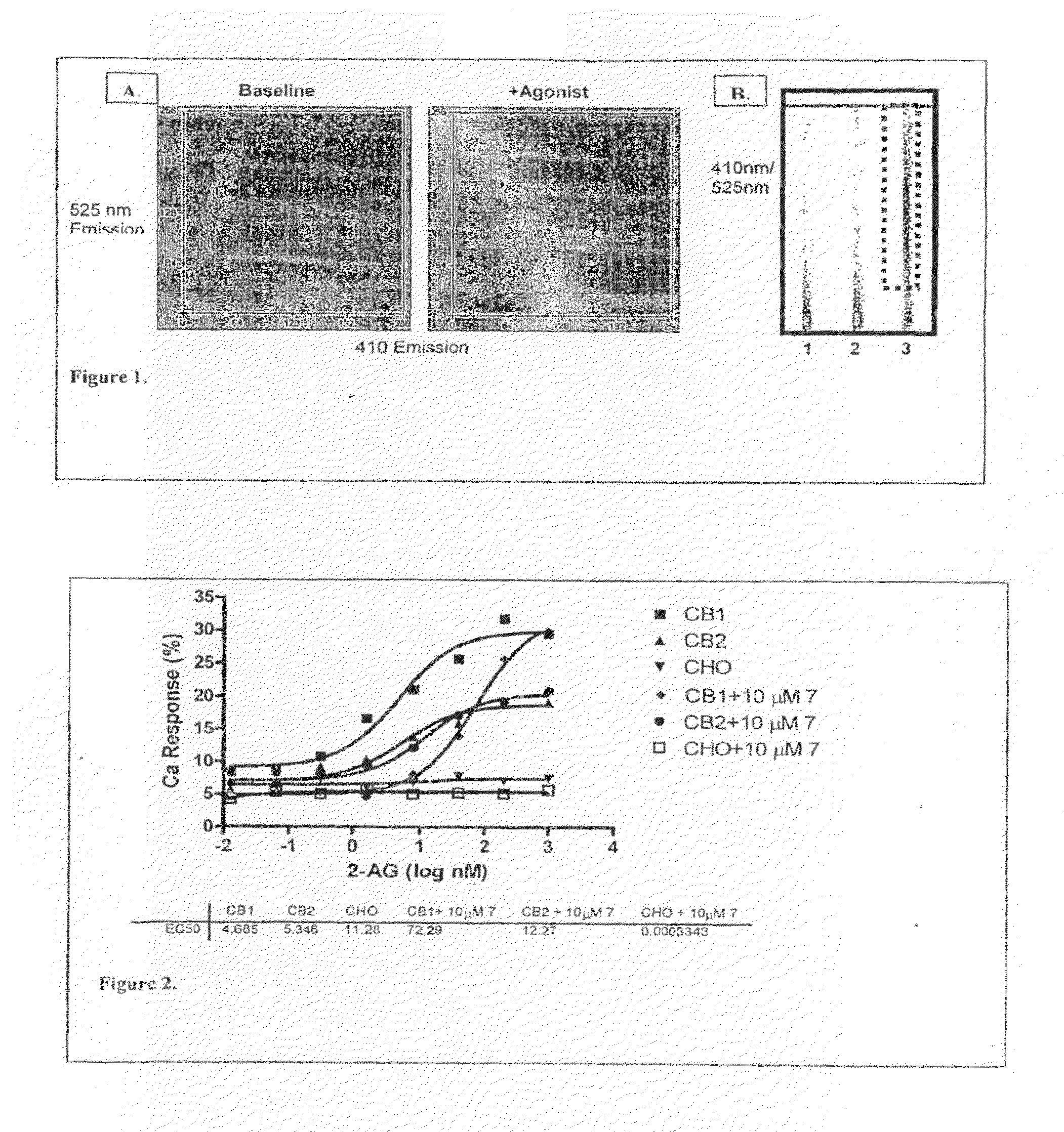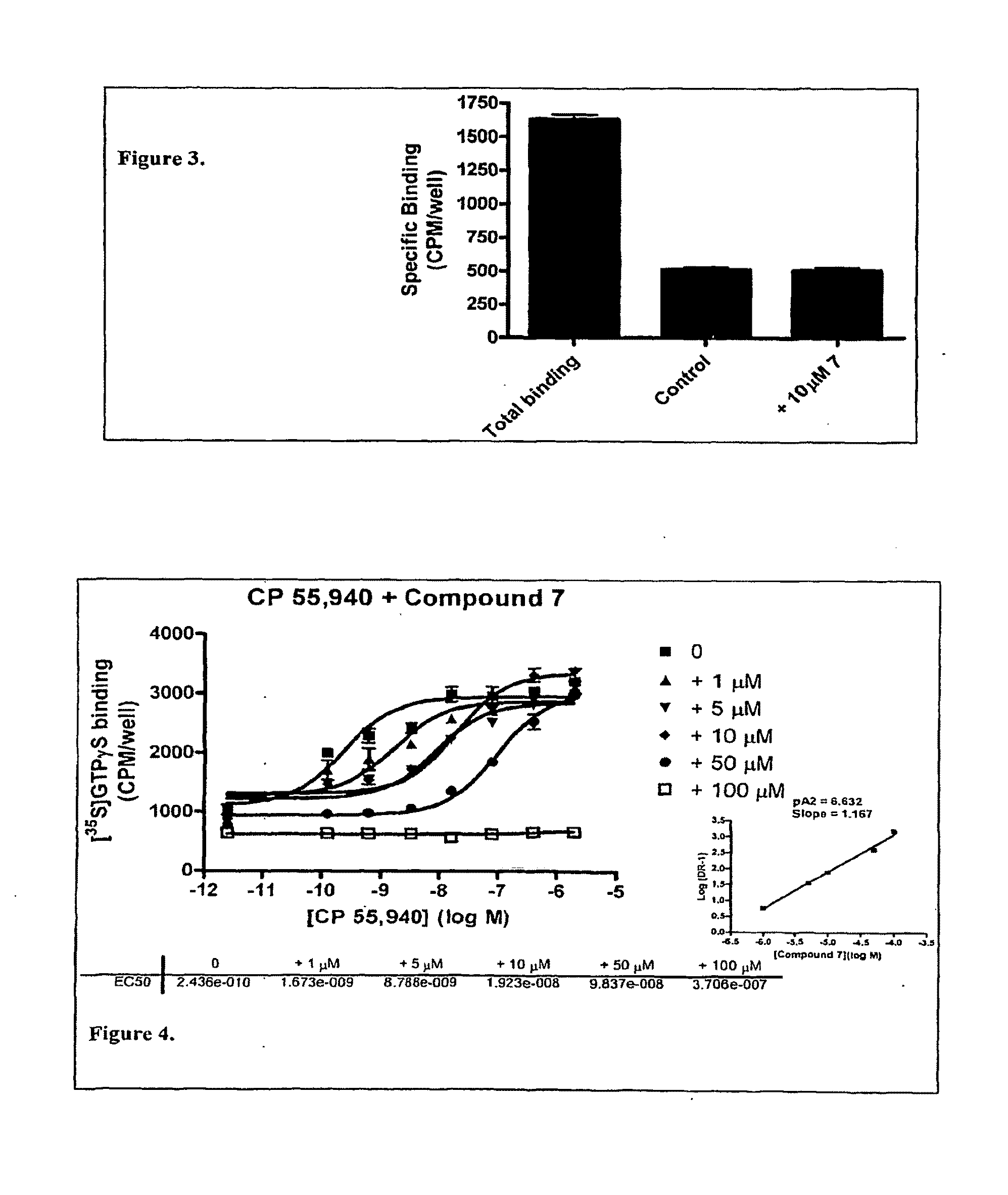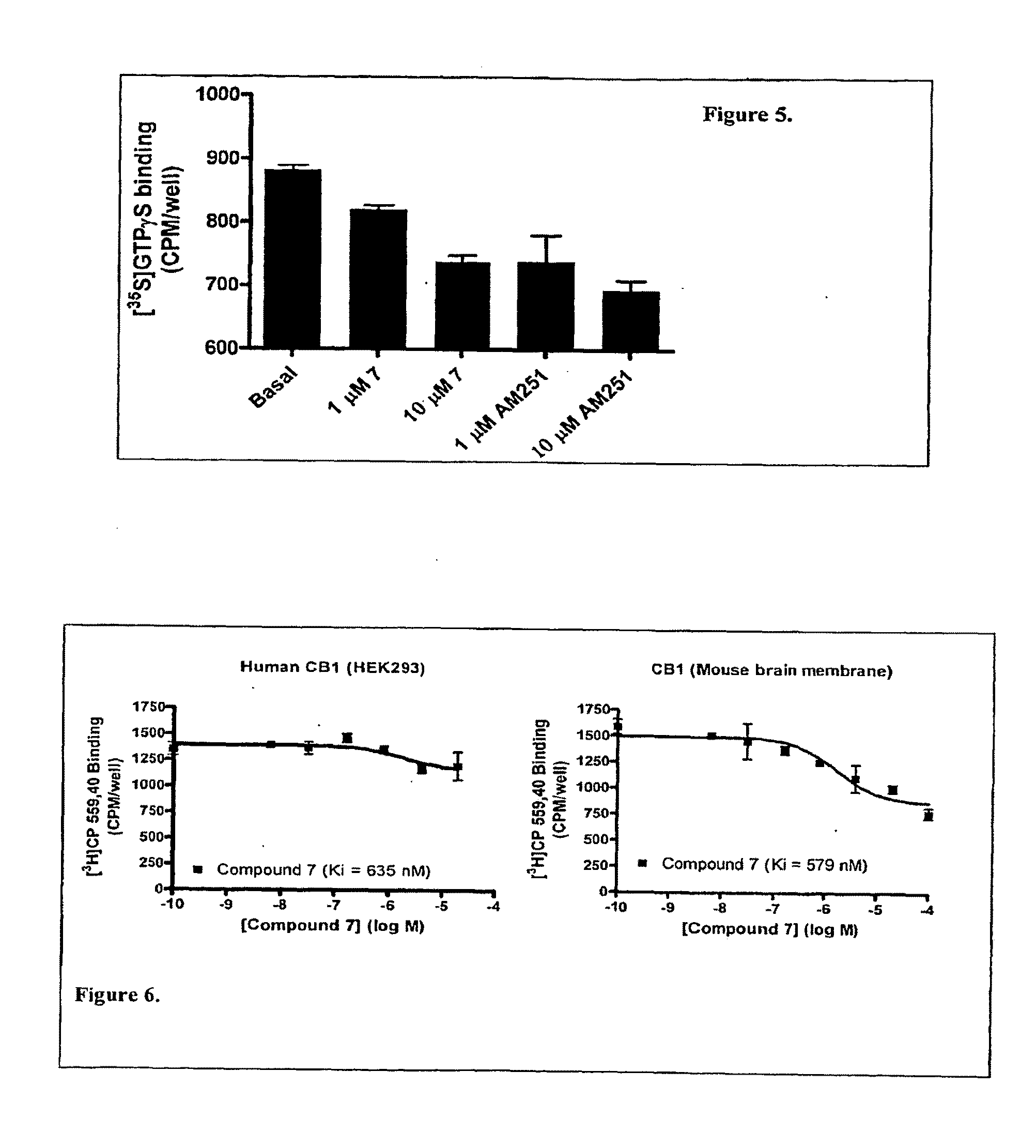CB1 Antagonists and Inverse Agonists
a technology of cb1 and antagonists, applied in the field of cb1 antagonists and inverse agonists, can solve the problems of increased morbidity and mortality, obesity association, and large percentage of children in the united states being overweight or obese, and achieve the effect of minimizing metabolic risk factors
- Summary
- Abstract
- Description
- Claims
- Application Information
AI Technical Summary
Benefits of technology
Problems solved by technology
Method used
Image
Examples
example 1
Assay Development
[0296]cDNA for the G protein GqΔGi chimera was generated by PCR and inserted into the polylinker region of the pcDNA3 / hygro+vector (Invitrogen). Stable expression of GqΔGi chimera protein in CHO cell line was generated under hygromycin selection. Human Cannabinoid 1 (CB1) cDNA was inserted into the polylinker region of the pcDNA3.1 / (+) vector (Invitrogen) and DNA was introduced into the GqΔGi / CHO cell line by Lipofectamine reagent (Invitrogen). Cell lines stably expressing the CB receptor with Gq ΔGi chimera protein were generated by double selection with hygromycin and G418 (Coward, P., et al. 1999. Chimeric G proteins allow a high-throughput signaling assay of Gi-coupled receptors. Anal Biochem. 270:242-8).
[0297]Cell line optimization was done by a proprietary method using our novel automated Direct Sample Injection System (DSIS, ‘Direct mixing and injection for high throughput fluidic systems’ Patent Application Number 20050249635) in conjunction with response. I...
example 2
Effect of Treatment X and Treatment Y on the Body Weight, Food and Water Intake of Male C57BL / 6J Mice which Exhibit Diet Induced Obesity
[0311]The goal of this study was to investigate whether repeated administration of Treatment X, a 1:1 w:w combination of R-norfluoxetine hydrochloride and bupropion hydrochloride, and Treatment Y, a combination of R-norfluoxetine and an MC4 allosteric potentiator, alters the body weight and daily food and water intake in C57BL / 6J mice exhibiting obesity due to access to a high fat diet. Sibutramine, which is currently used clinically, and rimonabant, which has recently received regulatory approval for the management of obesity were used as reference compounds.
Animals:
[0312]Sixty-five C57BL / 6J mice (7-8 weeks of age) were ordered from Charles River, Margate, Kent. Mice were group housed in polypropylene cages with free access to a high fat diet (D12451 45% of Kcal derived from fat; Research Diets, New Jersey, USA) and tap water at all times. Animals ...
example 3
Effect of Acute Administration of Test Compounds on Mouse Food Intake
[0318]The goal of this study was to investigate the effects of various ratios of bupropion:(R)-norfluoxetine on body weight and food and water intake in male C57BL / 6J mice habituated to the daily presentation of a palatable wet mash diet. Rimonabant was used as a reference compound. Animals were maintained on normal-phase lighting. Test compounds were administered orally and measurements were made over the following 24 hours. All experiments included appropriate vehicle-treated control groups.
Materials and Methods:
[0319]Sixty-two male C57BL / 6J mice (weight range 20-25 g) were ordered from Harlan UK, Bicester, UK. The mice were individually housed in polypropylene cages at a temperature of 21±4° C. and 55%±20% humidity. Animals were maintained on a normal phase light-dark cycle (lights off for 12 h from 19:00-07:00 h) during which time the room was illuminated by red light. Animals had free access to a standard pell...
PUM
| Property | Measurement | Unit |
|---|---|---|
| waist circumference | aaaaa | aaaaa |
| waist circumference | aaaaa | aaaaa |
| concentration | aaaaa | aaaaa |
Abstract
Description
Claims
Application Information
 Login to View More
Login to View More - R&D
- Intellectual Property
- Life Sciences
- Materials
- Tech Scout
- Unparalleled Data Quality
- Higher Quality Content
- 60% Fewer Hallucinations
Browse by: Latest US Patents, China's latest patents, Technical Efficacy Thesaurus, Application Domain, Technology Topic, Popular Technical Reports.
© 2025 PatSnap. All rights reserved.Legal|Privacy policy|Modern Slavery Act Transparency Statement|Sitemap|About US| Contact US: help@patsnap.com



